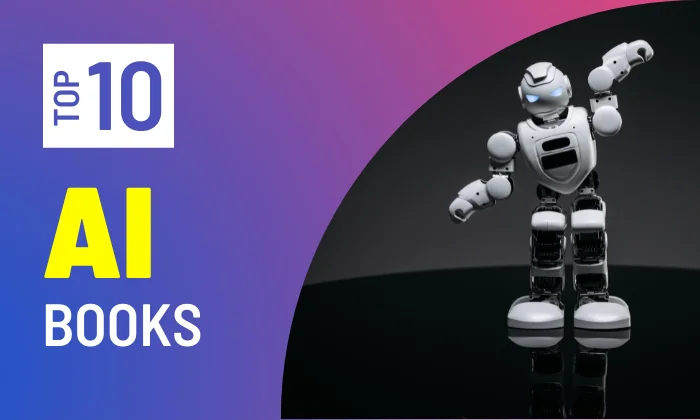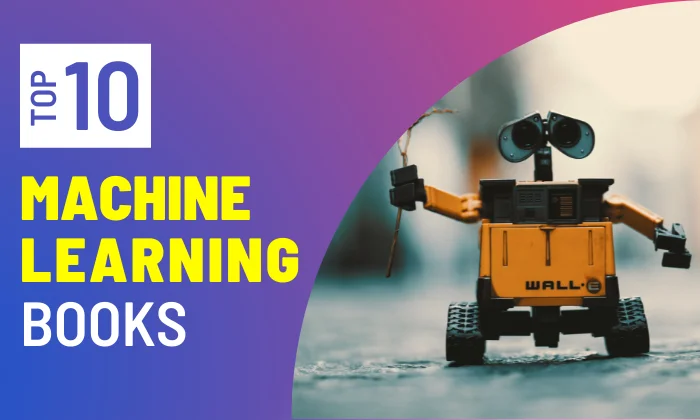These are the top 10 Go books that will help you learn and implement Go Programming.

1. Go Programming Language, The (Addison-Wesley Professional Computing Series) 1st Edition
by Alan Donovan, Brian Kernighan
Any programmer interested in learning Go should consult this authorized book. It demonstrates how to tackle real-world problems using plain and idiomatic Go. The book makes no assumptions about prior knowledge of Go or experience with any specific language, so it will be accessible to you whether you are more familiar with other programming languages such as Javascript, C++, or others.
Hundreds of intriguing and useful cases of well-written Go code covering the entire language, its most essential packages, and a wide range of applications are included in the book. Each chapter includes activities that will put your knowledge to the test while also allowing you to explore extensions and alternatives.
2. Head First Go 1st Edition
by Jay McGavren
This book makes it simple for beginning programmers like you to get started. The language is simple to understand and utilize. You’ll learn to write Go programming with simple examples that show the language in action with this practical hands-on course. Most importantly, you’ll comprehend the standards and approaches that businesses want entry-level Go developers to understand.
Based on the most recent research in cognitive science and learning theory, this book engages your mind with a visually rich format rather than a dense text structure and language that puts you to sleep. This multi-sensory learning experience is designed to mimic how your brain operates in real life.
3. Learning Go: An Idiomatic Approach to Real-World Go Programming 1st Edition
by Jon Bodner
The author introduces and examines the design patterns that experienced Go developers have adopted. You’ll also get a sneak peek at Go’s planned generics support, as well as how it fits within the language.
Go is quickly becoming the language of choice for developing online services. While there are several tutorials available to teach Go’s syntax to developers with prior programming knowledge, they are insufficient. Developers wind up reproducing patterns that don’t make sense in a Go context since they don’t explain Go’s idioms. This practical guide gives you the background you need to write idiomatic and unambiguous Go. You’ll learn how to think like a Go developer, regardless of your previous experience.
4. Go in Action 1st Edition
by William Kennedy, Brian Ketelsen, Erik St. Martin
This book will teach you how to master the art of Go programming. The book opens with an overview of Go’s distinct features and principles. After that, you’ll get hands-on experience building real-world programs like websites and network servers, as well as data manipulation and conversion techniques that will make your peers envious.
This book is for any intermediate-level developer who has worked with previous programming languages and wants to get a head start on learning Go or gain a deeper grasp of its internals. This book offers an in-depth, thorough, and idiomatic look into the game of Go. It covers topics including language grammar, Go’s type system, channels, and testing, as well as the language’s definition and implementation.
5. Introducing Go: Build Reliable, Scalable Programs 1st Edition
by Caleb Doxsey
With brief, readily digestible chapters that build on one another, this book gives the support you need to get started with the language. Go is a high-level programming language with a simple syntax and powerful features such as concurrency. In each chapter, the author walks you through the language’s main features with step-by-step instructions and activities to help you practice what you’ve learned.
This hands-on course is ideal for novices who are already familiar with the fundamentals of programming. It provides an easy introduction to Go, Google’s general-purpose programming language. Not only will you be able to develop genuine Go programs by the end of this book, but you’ll also be ready to tackle advanced approaches.
6. Go in Practice: Includes 70 Techniques 1st Edition
by Matt Butcher, Matt Farina
This book takes you through hundreds of appropriate strategies in a variety of fields. This practical guide builds on the core concepts of the Go language and introduces specific tactics you can apply in your day-to-day applications. You’ll learn how to create web services, use Go in the cloud, test and debug, route, and use network apps, among other things. You’ll be ready to construct powerful cloud-native Go applications once you’ve finished this book.
It’s simple to get started with Go if you know a programming language like Java or C#; the problem is figuring out the practical strategies you’ll need to write production-ready code.
7. Get Programming with Go 1st Edition
by Nathan Youngman, Roger Peppe
Google Go is a little programming language meant to solve large issues. Vast projects necessitate large teams of people with diverse levels of experience. Go is a small but powerful language that anyone, regardless of experience, can understand and use. This book gives an introduction to the principles of the Go programming language, providing us with a solid basis for your future programming projects. You’ll cover Go syntax, types and functions, and much greater concepts like state and concurrency, with lots of programming exercises to help you remember everything. This book is for those people who already know computer programming as well as those who want to learn more about this programming language.
8. Go Web Programming 1st Edition
by Sau Sheong Chang
This book teaches you how to create web applications in Go while adhering to contemporary design standards You’ll learn how to write test doubles using the dependency injection design pattern, how to use concurrency in web applications, and how to build and consume JSON and XML in web services. Along the way, you’ll learn how to reduce your reliance on external frameworks and gain useful productivity practices for testing and deploying your apps.
The Go programming language meets the requirements of scalable, high-performance online applications by providing clean and quick-built code, garbage collection, a simple concurrent model, and an excellent standard library. It’s ideal for developing microservices or creating scalable, maintainable systems.
9. Concurrency in Go: Tools and Techniques for Developers 1st Edition
by Katherine Cox-Buday
The author guides you through the process from beginning to end. You’ll explore how Go model’s concurrency, what problems occur as a result of this model, and how you can resolve problems by composing blocks inside this model. Learn the knowledge and tools required to write and implement concurrent systems of any size with confidence.
Concurrency is traditionally tough to get right, but the Go open-source programming language makes it manageable, if not easy. This practical book explains best practices and techniques to help you incorporate concurrency into your systems if you’re a Go developer. Readers will learn how to combine patterns into a set of principles that will help them design large, distributed systems that scale.
10. Go Programming Language for Dummies
by Wei-Meng Lee
The time to learn the Go programming language is now. It’s one of the most popular languages among IT recruiters, and developers appreciate its ease of use and strength. For Beginners, Go Programming is a simple approach to add this valuable professional skill to your arsenal. This book covers basic grammar, writing functions, managing data, making packages, and communicating with APIs for both newbie and expert coders.
This programming language has shown to be an excellent alternative for developers designing cloud-based apps. This book will set you on the path to learning the language that powers some of today’s most popular web apps, allowing you to choose your career in the direction you want to go.
Stay tuned to AiHints for more insightful tutorials on web development, programming, and artificial intelligence. Happy coding!


